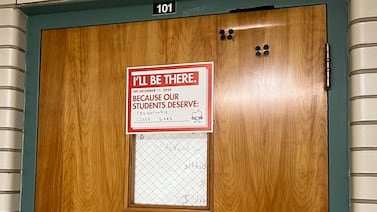Newark students and educators are gearing up for a school year like no other.
When school starts next Tuesday, students will log onto their computers from home rather than step into classrooms. While principals, teachers, school employees, and district officials have worked tirelessly to prepare for the virtual start of school, not everyone is ready for remote teaching or learning.
Due to a nationwide laptop shortage, some schools have run out of devices to loan to students. And some parents have reported problems with the available free or discounted internet services, which can be slow or offer spotty coverage.
Some teachers and parents say they’ve received limited information about what remote learning will actually look like. What is the daily schedule? Will teachers give live virtual lessons every day or less frequently?
On top of that, many parents — and educators who are parents — are still trying to figure out who will supervise their children’s remote learning while they work. The city has floated the idea of opening free child care centers, but plans have yet to materialize.
Chalkbeat wants to hear from parents, students, and school staff. Tell us your feedback, concerns, and lingering questions below.
Having trouble viewing this on your mobile phone? Go here.






